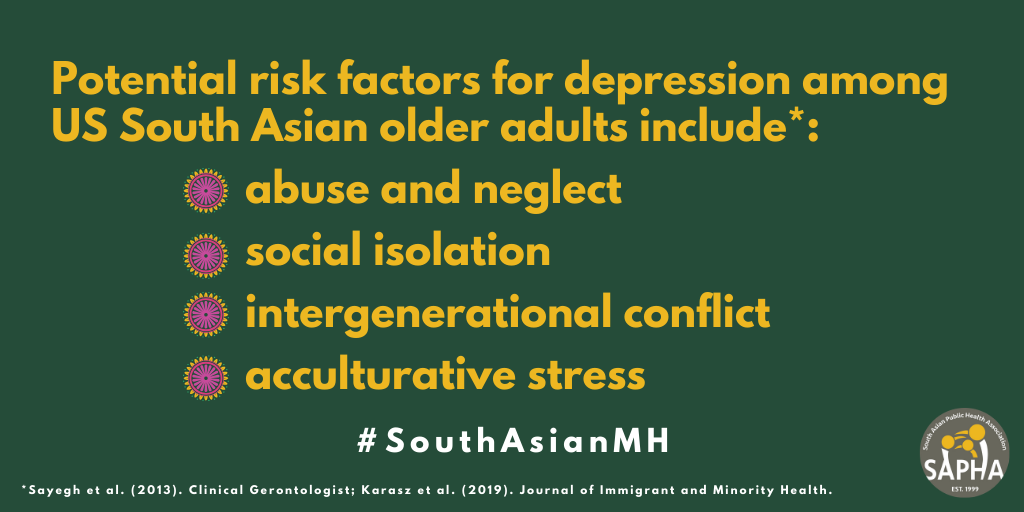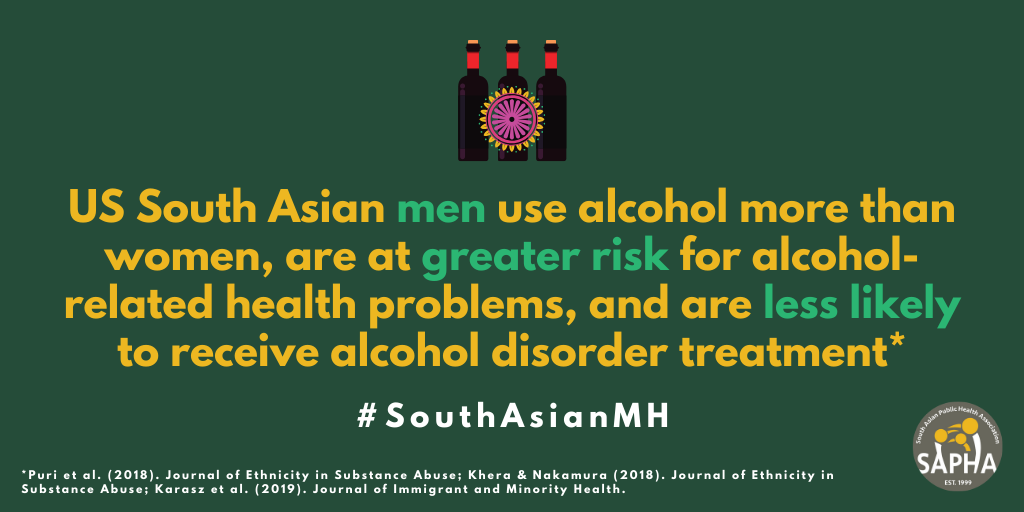

COVID-19 has impacted our lives in an unprecedented manner. Ranging from unexpected pathology to nation-wide quarantine measures, this pandemic has radically shifted our conversation on public health. Undeniably, mental health plays a fundamental role in these conversations. As part of Mental Health Awareness Month and Asian Pacific Islander Heritage Month, we discuss specific points about mental health in the South Asian community and highlight the urgent need for more research.

1 in 5 US South Asians report experiencing a mood or anxiety disorder in their lifetime.1 Mental health problems are common for US South Asians, with women reporting higher levels of distress than men. While these are the only nationally representative data available, they are from 2002-2003 and largely reflect those who are foreign-born, Indian, and Hindu. Current data are urgently needed to reflect the full diversity of these communities in the current sociopolitical context.

US South Asians often express greater stigma toward mental illness than other groups.2-5 Stigma toward mental illness is a major barrier to getting help. Studies among US South Asians suggest: personal stigma may be greater than public stigma; stigma can extend to family; biological explanations of mental illness may increase stigma. Understanding how stressful experiences such as acculturation and discrimination contribute to mental illness may be a helpful step in reducing stigma.

South Asians commonly experience psychological distress as physical symptoms.6 Mental health problems can manifest physically, such as sleep troubles, bodily pains, and stomach problems. When this occurs, it increases the likelihood of being undiagnosed and untreated since mainstream models of mental health in the US focus on psychological symptoms. It is possible that some cultural values can make it challenging to express stress and conflict and contribute to the greater emphasis on physical symptoms, even when psychological ones are present.

Limited studies among US South Asian older adults make conclusions challenging;1,7 however, available data suggest they face a disproportionate burden of psychosocial stress in the community, especially older women. Potential risk factors for depression include abuse and neglect, social isolation, intergenerational conflict, and acculturative stress. Depression in older adults can also exacerbate risk for poor physical health and lead to slower recovery from physical illness.

US South Asian youth are at greater risk for suicidal thoughts and behaviors than many other minority groups.11-13 US South Asian youth who are suicidal may present with: academic concerns, relationship problems, risky behaviors, and physical symptoms. Potential precipitating factors include interpersonal problems with family members, domestic violence, gender role expectations, and cultural conflicts. Potential protective factors include social and familial support, the inclusion of family in mental health treatment, and positive relationships with peers and with adults outside the home.

US South Asian men use alcohol more than women, are at greater risk for alcohol-related health problems, and are less likely to receive alcohol disorder treatment.1,14-15 UK data suggest that alcohol use among South Asians, combined with other factors, can increase the risk for alcohol use disorder, liver disease, and oral and breast cancers. Alcohol use among South Asian men is also linked to increased family violence and disruption, financial problems, drinking and driving, and legal problems.

There are no published data on schizophrenia and bipolar disorders among US South Asians. Immigrants and ethnic minorities, including UK South Asians, experience major inequities in schizophrenia and bipolar disorders, such as higher rates, greater severity, and worse treatment, yet no data exist on US South Asians with these conditions.